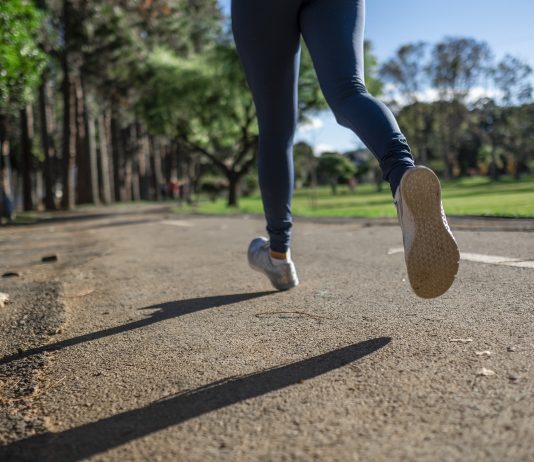The glutes, also known as the buttock muscles, play a crucial role in keeping your pelvis stable and level while running, as well as maintaining proper alignment between your torso, pelvis, and legs. They also provide the necessary power and forward drive during running.
Injury is a setback that can happen to any runner, regardless of their experience level. According to biomechanics expert Jay Dicharry, around 82% of runners will face an injury at some point in their career. Whether you're an elite runner who logs 120 miles per week or someone who is training for their first 5K, being sidelined due to an injury can be both physically and emotionally challenging.
Deep water running is a great way to stay in shape without putting excessive pressure on your joints. This exercise provides a full-body workout that strengthens muscles, enhances cardiovascular fitness, and maintains sport-specific neuromuscular movement patterns. By leveraging the buoyancy of the water, deep water running reduces weight-bearing forces on injured joints, ligaments, and tendons. Additionally, the water's viscosity offers resistance that can help improve strength.
The Double Threshold System and the Canova Special Block may share some apparent similarities, but delving deeper reveals their intrinsic differences. It is essential for runners to grasp this key takeaway: the Double Threshold System is not merely a Canova Special Block. While both involve two intense workouts in a day and a significant volume of fast running, their objectives and training philosophies set them apart.
It is crucial to acknowledge that endurance training does not rely on secret formulas or miraculous workouts. Instead, it revolves around subjecting the cardiovascular system, metabolism, and muscles to stress, triggering adaptive responses. While training methodologies may evolve, the core principles remain unaltered.
Lactate threshold plays a vital role in optimizing running performance, representing the exercise intensity at which blood lactate begins to accumulate. By delving into the significance of lactate threshold and adopting effective strategies to improve it, runners can train their bodies to endure high-intensity workouts with reduced fatigue. This article explores practical methods to elevate your lactate threshold, ultimately leading to enhanced endurance and speed.
Threshold training, or T-pace, running is highly beneficial for distance runners, providing satisfying workouts and better consistency while avoiding overtraining. There are two types of threshold training: tempo runs and cruise intervals. Tempo runs are moderately prolonged runs that improve endurance, while cruise intervals involve repeated runs with brief recoveries. The focus here is on tempo runs, including extended tempo runs.
Strength Training for Runners: Unlocking Speed, Efficiency, and Injury Prevention
Runnerstribe Admin -
Strength training is a crucial component for runners looking to enhance their performance. While incorporating tempo runs, long runs, and speedwork into your routine can improve speed and efficiency, adding strength training takes your running abilities to the next level. According to Jason Fitzgerald, a running coach and founder of Strength Running, strength work accomplishes three main goals for runners: preventing injuries by strengthening muscles and connective tissues, helping to run faster by boosting neuromuscular coordination and power, and improving running economy by enhancing coordination and stride efficiency.
strength training serves as effective cross-training to address specific injuries, discomfort, and muscle strains. Research indicates that strength training can improve flexibility as effectively as, or even more than, passive stretching. Feelings of tightness often arise from weakened muscles, resulting in imbalances and compensatory movements. By incorporating strength training and mobility exercises, runners can prevent injuries and enhance their running performance, especially if they have specific concerns such as tight calves.
Are you feeling inundated with the abundance of massage therapists and spas in your locality? The task of finding the perfect massage can be daunting, especially for runners seeking relief from post-run aches. With numerous options offering different massage types, durations, and intensities, athletes often find themselves in a quandary about which technique will effectively alleviate their discomfort.












